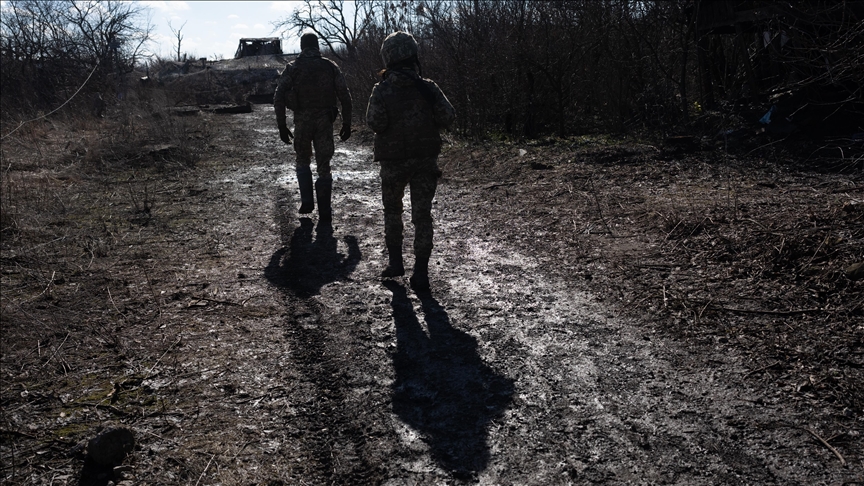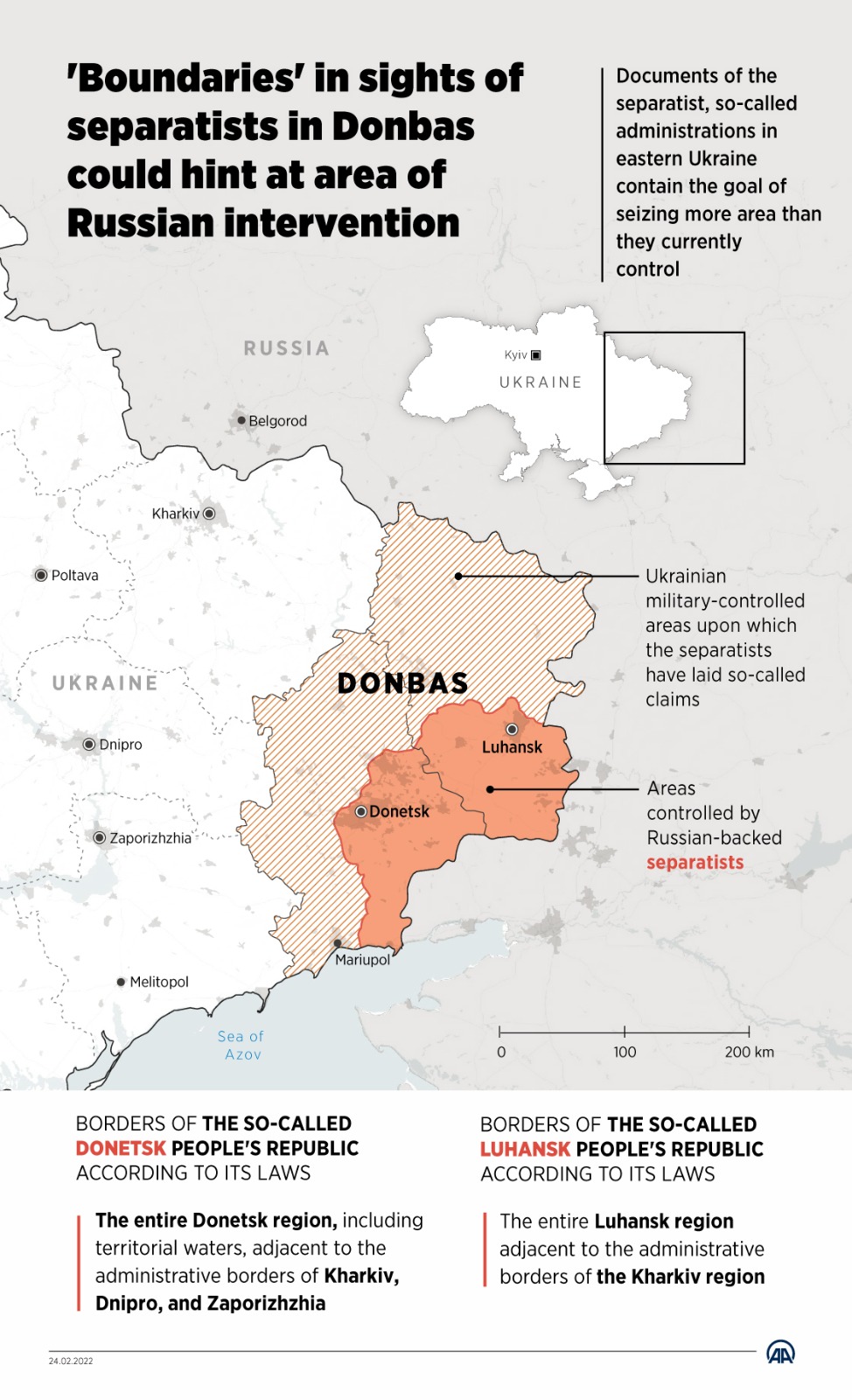Boundary claims of separatists in Ukraine could hint at extent of Russian intervention
'Fundamental documents' of separatists in eastern Ukraine contain goal of seizing areas they currently don't control
 Ukrainian Servicemen on the frontline outside of Svitlodarsk
Ukrainian Servicemen on the frontline outside of Svitlodarsk
MOSCOW
"Border claims" by the so-called administrations of two separatist regions in eastern Ukraine will open the door to new problems in the region.
Russian President Vladimir Putin on Monday announced Moscow's recognition of the two breakaway regions of Luhansk and Donetsk as independent states before quickly deploying troops there to "maintain peace."
Putin's recognition of the so-called republics raises the question of "which borders" Moscow will take into consideration and where it will halt its military intervention.
The Russian president said Moscow has also recognized all these two regions' "fundamental documents," and thus the borders claimed by their so-called constitutions.
Claims by breakaway regions
Both Donetsk and Luhansk declare in their respective constitutions that their boundaries contain the areas they controlled on the day of their "founding."

For Donetsk, this is "the entire Donetsk region, including territorial waters, adjacent to the administrative borders of Kharkiv, Dnipro, and Zaporizhzhia region," while Luhansk claims "the entire Luhansk region adjacent to the administrative borders of the Kharkiv region."
Pro-Russian separatists currently control the areas surrounding the cities of Donetsk and Luhansk.
Much of the areas within the borders that the separatists claim are today under the control of the Ukrainian army.
Moscow's recognition of these borders provides an idea of the extent of its military intervention in Ukraine.
Minsk agreements no more: Putin
Putin declared in an earlier address that the Minsk agreements, which included a cease-fire between Kyiv and the rebels, no longer exist because of the actions of Ukraine. Along with the treaties, the truce and line of contact between the two sides, have also ceased to exist, according to the Russian president.
Moscow accuses the Ukrainian army of approaching the line of contact for a long time, deploying around 120,000 soldiers and heavy weapons, thus violating the agreements' terms.
On Tuesday, Russia's parliament authorized the use of the Russian armed forces abroad. This came on the heels of Moscow promising military aid to both Donetsk and Luhansk for "peacekeeping missions."
Putin has thus been given the authority to decide, in accordance with the Russian Constitution, the total number of Russian soldiers to be sent to the region, their fields of activity, duties, and the duration of their stay.
A decision to evacuate civilians in Donbas to the Rostov region of Russia also supports the argument that the magnitude of the military conflict and intervention may increase.
If the separatists deploy Russian military units to strategic areas such as Mariupol, which will allow control in the Black Sea, the area of conflict will expand.
Russia on Thursday launched a military intervention in Ukraine, targeting key areas of cities with weapons and missiles, according to reports, just days after recognizing two Russian separatist-held enclaves, Donetsk and Luhansk, in eastern Ukraine.
The attack was preceded by a months-long buildup of some 100,000 Russian troops on Ukraine's borders, deployed there for "exercises," according to repeated statements by Moscow.
*Writing by Seda Sevencan
Anadolu Agency website contains only a portion of the news stories offered to subscribers in the AA News Broadcasting System (HAS), and in summarized form. Please contact us for subscription options.







